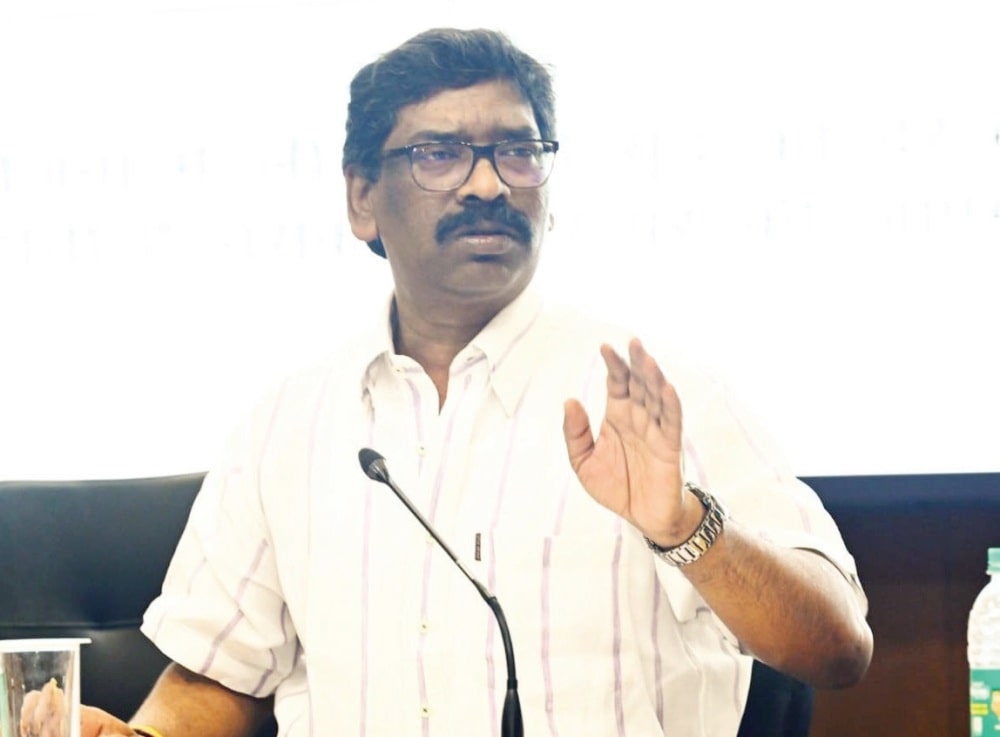

When he has taken three weeks' time and thereby not followed the ED’s summon to appear before it, Jharkhand CM Hemant Soren appears to be riding on two horses at a time.
One, CM Soren has been attending public meetings and clearing several proposals since August 25 when the Election Commission sent its opinion to Governor Ramesh Bais on his possible disqualification of MLAship over acquiring a stone mining lease for himself.
Consider these as examples:
The CM Soren presided over a Cabinet meeting held on October 10, approving proposals for the purchase of Rs 9.03 crore worth 21 luxurious Škoda cars for judges; one Audi Q7 worth Rs 1.25 crore for the CM; and Rs 4 crore for 25 Mahindra Bolero vehicles for the Cabinet Ministers as well as for the Assembly Speaker.
In another Cabinet meeting on October 25, CM Soren cleared six luxurious vehicles for Governor’s cavalcade.
More, the Soren government increased the reservation quota from 14 percent to 27 percent for Other Backward communities, who constitute nearly 46 percent of the state’s population.
Under the state government scheme - Sarkar Apke Dwar, he has been promising and providing government services to beneficiaries in more than 4,325 panchayat(s).
The CM Soren has convened a special one-day session on November 11 when the Jharkhand Assembly is expected to pass bills relating to 1932 land records to identify local residents and for providing 27 percent reservation to OBCs.
Nobody knows whether these moves of CM Hemant Soren will cross the legal boundaries of the judiciary. But he deserves praise for various actions directed at public outreach in this challenging time of his political career.
Two, however, his response to the central investigating agency can be a move toward stumping his own wicket as the ED is set to send him to summon again.
If CM Soren declines to respond favourably, the ED can send him summon for the third time. And, in case, he again prefers to decline, the ED can move the court or directly proceed to arrest him, say legal experts. Against this backdrop, some parts of Jharkhand CM Soren’s case match with the Maharashtra ex-Home Minister Anil Deshmukh.
Under the provisions of the PMLA Act, the ED has power and authority similar to the civil court. According to The Times of India report, ED has strong evidence showing his involvement in money laundering cases of his associates such as Pankaj Mishra, Prem Prakash and Amit Agrawal.
If the texts of the investigation and charge- sheets submitted in the Ranchi-based PMLA court and the Jharkhand High Court are to be studied, Mishra, Prakash and Agrawal, who were in jail, were hand in glove with the CM and were involved in illegal mining and transportation of stones under his backing.
Prior to this, the ED had arrested the trio and recovered Rs 20 crore and claimed that this was a small part of the sum earned through an illegal mining scam worth Rs 1000 crore.
Before sending summon to the CM Soren, the ED had collected the documentary and electronic evidence revealing the money- trail including statements of the above three accused from whose premises the signed and unsigned cheque -books of CM Soren were recovered.
In the case of Maharashtra ex-Home Minister Anil Deshmukh’s case, the ED had issued a number of summons. Instead of abiding by its summons, Deshmukh had gone underground for almost six months. Later, he was arrested and sent to jail.
In defence, Deshmukh moved PMLA court, High Court, and the Supreme Court, but he did not get bail. CM Soren appears to have a tightrope to move forward though he has the support of the majority in the Jharkhand Assembly till date.